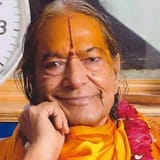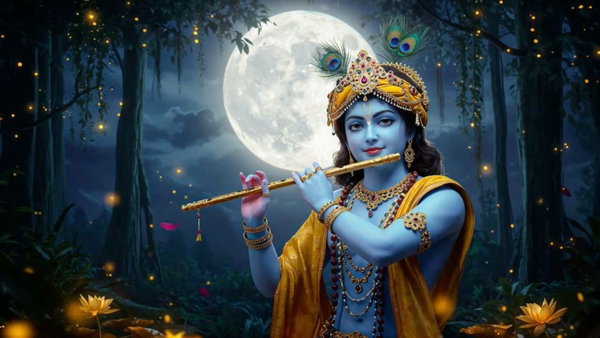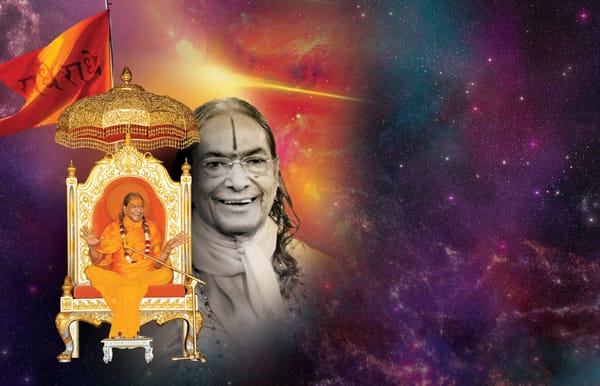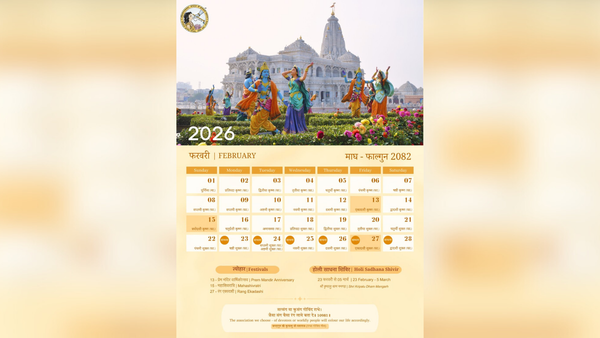A Guide to the Three Types of Devotion

Devotion can be practised in many forms. In the Bhagavatam alone, more than thirty types of devotional practise are mentioned. Devotion simply means to attach your mind to God. Most Saints accept nine forms of devotional practice called navadha bhakti. This is precisely what Prahlad preached to his demonic classmates,
sravanam kirtanam visnoh smaranam … (Bhagavatam 7.5.23)
However, Jagadguruttam Shri Kripalu Ji Maharaj has chosen only three of these nine, and he points out that this is not just his opinion either. In the Bhagavatam, 1.19.38, Parikshit asks his Guru, Shukadev Paramhansa, yacchrotavyam atho japyam … “O master, which form of devotion should I practise to attain my goal?” Shukadev replied, tasmad bharata … shrotavya kirtitavyas’ca smartavyas’ … (Bhagavatam 2.1.5) “Practise only three kinds of devotion: shrotavyah, kirtitavyah and smartavya.”
When you listen to a spiritual discourse, you are practising one of these - shravan bhakti - an essential part of devotional practice. A spiritual aspirant should always be mindful of spiritual knowledge, and Gauranga Mahaprabhu agrees, siddhanta baliya chitte na kara alasa “Do not be careless in the acquisition of spiritual knowledge.” The second form of devotion we must practise is kirtanam, chanting, and the third, smaran, loving remembrance of God.
Among these three, loving remembrance of God is the most important. In the Bhagavatam, Brahma says, “O humans! I have deliberated over the Vedas three times and have extracted the essence for you: constantly meditate on God.” This is the principal form of devotion. Padma Purana concurs, “Remember God alone. This is the only form of devotion.” alodya sarvashahtrani vicharya … (Skanda Puran) To constantly remember God alone is the essence revealed by Veda Vyasa as well.
You may wonder why meditation is the main form of devotion. The Bhagavatam gives us the answer, chetah khalvasya bandhaya … (Bhagavatam 3.25.15) Because it is your mind alone that is the cause of bondage or liberation, and not your physical senses. The act of chanting is done by your senses, so too is listening, but remembrance – smaran – is done by the mind alone. Remembering God is devotion, turning your mind away from the world is detachment, and attachment of your mind to God is devotional practice.
Jagadguruttam Shri Kripalu Ji Maharaj has introduced a word, rupdhyan, for loving remembrance meditation. Thus, only rupdhyan is a must. You can do chanting to accompany it, and it is good to employ your physical senses too, but it is not compulsory that you do so. However, if you do not do rupdhyan and just mindlessly chant with your tongue, then even if you did this for infinite lifetimes it would still not award you the love of God. You cannot attain God just by listening to lectures and just by verbally chanting with your tongue. You must meditate on Him, there is no other way.
As your remembrance grows stronger, your yearning to meet God will develop. The intensity of this yearning is what melts your heart and purifies it. When your heart becomes 100 percent pure, that is, when it is completely free of all worldly attachments, you become eligible to receive divine love. Thus, do rupdhyan first and then you can do whatever you like. Everything will be fine. But if your mind is not employed in loving remembrance of God, then whatever you do in the name of devotion is useless, like a body without a soul.
Always pay attention to meditation on God. This is where you have been careless since eternity. Your mind is your enemy in this regard. It keeps wandering off here and there while you are chanting the holy name of God. What are you looking at with your eyes wide open? You have wasted countless lives looking at this world. What new thing will you see? Stay focused on the task at hand and do not succumb to the dictates of your mind. Always and everywhere, pay special attention to rupdhyan.
Kripalu Bhaktiyoga Tattva-darshan – the essence of Vedic wisdom, spirituality and devotion in daily life.





